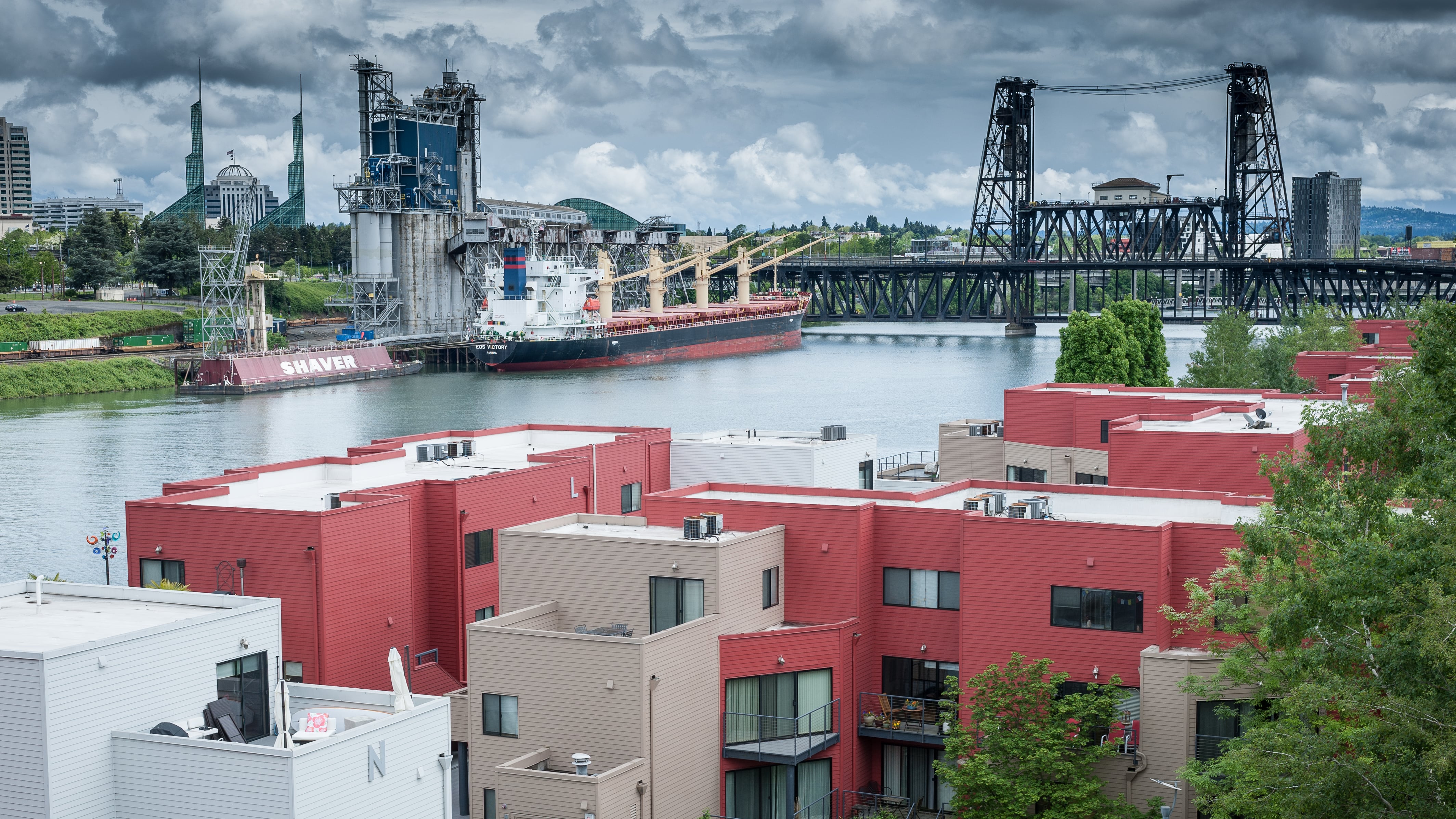Environmental groups are airing frustration over a shrinking of the cleanup of the Portland Harbor Superfund site, saying the changes weaken a plan 17 years in the making and favor the parties that are financially responsible.
The proposed change to the Superfund cleanup site by the Environmental Protection Agency would cut costs by $35 million and reduce the cleanup area by 17 acres. The agency says the alteration is due to "new science [that] finds lower risk for one pollutant."
Environmental and social justice advocates disagree.
They say it goes against the Record of Division, the formal plan filed by the EPA in 2017, and will unduly harm people of color in Portland.
"As much as this is an opposition to a weakened cleanup, this is a racial and social justice story," Donovan Smith, a spokesperson for the Portland Harbor Community Coalition, says. "While the swim-ability of the river has greatly improved, the river is still home to some of the worst toxins and harming some of the most vulnerable in our community who depend on it for sustenance, among other things."
In early January, 2017, after decades of study and legal debate, the EPA ordered a $1.05 billion cleanup of the Willamette River superfund site—a 2,200-acre stretch of the Portland Harbor deemed toxic from over a century of industrial activity. The plan includes dredging and capping toxic, carcinogenic sediment from the contaminated stretch of the river and disposing it off-site.
Following Donald Trump's inauguration, about two weeks after the cleanup plan was formalized, environmental groups and Gov. Kate Brown expressed concern that efforts would be delayed or weakened at the behest of the financially responsible parties.
In October, that appears to be what happened.
On Oct. 22, 2018, the EPA announced plans to weaken dredging efforts, citing new research that shows one chemical targeted for cleanup, benzoapyrene, is less toxic than previously thought.
In a fact sheet summarizing the basis for the changes, the EPA says the update in its risk database for the toxicity of benzoapyrene came on Jan. 19, 2017, around two weeks after the issuance of the ROD. A dispute of the toxicity of benzoapyrene was presented in a memo to the EPA by NW Natural, one of the entities financially responsible for the site cleanup, on Aug. 2, 2017.
With the finding, the EPA notes, it no longer finds it necessary for "potentially responsible parties to incur the substantial expense of designing remedies for areas of the site that EPA could no longer consider to present unacceptable risk based on EPA's own current scientific information."
Environmental groups are crying foul.
In a letter sent to the EPA by the Portland Harbor Community Coalition—which includes members of the NAACP and Right 2 Survive, among others—advocates argue that "that the proposed departure from the ROD is correlated with political changes to the federal administration and EPA leadership."
"We are shocked and disappointed by EPA's proposal to weaken cleanup standards and shrink the scope of the cleanup," the letter reads. "We lack the money and political access to EPA headquarters that PRPs (potentially responsible parties) have utilized to bring about this expedited change."
The Dec. 21 letter is signed by around 100 advocates, including executive directors of Willamette Riverkeeper and the Audubon Society of Portland.
According to Smith, over 1,000 comments were submitted to the EPA during its 60-day input-gathering period.
On Wednesday, PHCC also sent a letter to the Gov. Brown and Richard Whitman, director of the Oregon Department of Environmental Quality, urging them to oppose the EPA's plan.
"PHCC and its partners have been collecting stories of individuals from Black, Native American, immigrant, refugee, and houseless communities and other area residents disproportionately impacted by Portland Harbor pollution due to higher-than-average fish consumption and other exposure pathways," the letter reads. "The coalition is calling upon Oregon officials to oppose the federal agency's plan."
Suzanne Skadowski, a spokesperson for the EPA, says the agency is still in the process of reviewing public comments.
Skadowski says the agency plans to issue its final plan "probably before the end of the year."
Representatives for the Gov.'s office and DEQ could not immediately be reached for comment.

